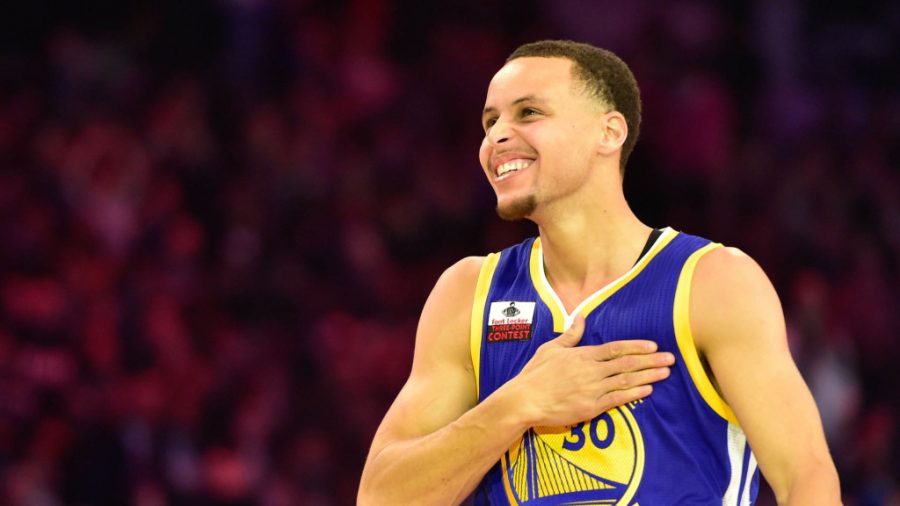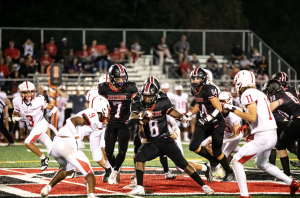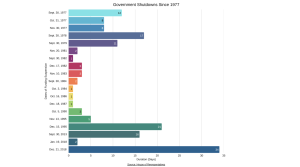The polarizing story of Stephen Curry, and why his 2020-21 season has been so special
The Golden State Warriors’ Stephen Curry has had one of his best seasons at the age of 32, 5 years removed from his last MVP.
April 8, 2021
Stephen Curry has had one of the most fascinating, and decorated, journeys of any NBA superstar in recent history. He’s a two-time, back-to-back MVP. He’s the only unanimous MVP in NBA history. He’s a 5-time Western Conference champion, and a 3-time World Champion. He’s become a global brand. He changed the game of basketball. And yet, he’s one of the most disrespected NBA players in recent memory, not only by the media, but also by former and current NBA players.
Curry’s story is so intriguing because it’s shocking how he is so often discredited. People say he can’t carry a team as the best player, when he won a title doing just that in 2015. He was the best player, and a unanimous MVP, on the best regular-season team in history in 2016, but that no longer counts because the Warriors blew a 3-1 lead in the Finals (he was exceptional the rest of that playoffs despite battling a few nagging injuries, the NBA suspended one the Warriors best players in game 5, and the Kyrie Irving and Lebron James basically turned into dual versions of Michael Jordan for games 5-7. I’m getting mad. Let’s move on). And when Curry agreed to let Kevin Durant join the Warriors to help them win 2 more titles, something almost no other player of Curry’s caliber would have done, Curry took a backseat and gets very little credit for titles 2 and 3 of the Warriors dynasty. Everyone wants the unselfish superstar, right until they do something truly unselfish like Curry did- then they get labeled weak.
Former players levy some of the heaviest insults against Curry- Oscar Robertson once declared that the way to stop his scoring was to simply “pick him up full court”. MJ himself said last year that Curry “wasn’t a Hall of Famer yet”, when Curry’s accolades pile far higher than most existing players in the Basketball Hall of Fame. He’s often called weak and a bad defender- in reality, Curry is an average defender who was often surrounded by good defenders, and he happened to be the worst defender of an exceptional group.
Before the season started, there was clamor that Curry “needed to carry his team to the Playoffs” if he were to truly cement himself as a superstar. Actually, this point I don’t think is completely unfair- we don’t need more evidence that he is a superstar, but to carry a depleted, although not entirely untalented, Warriors team to the playoffs would be a good measure of Curry’s abilities at this point in his career. Well, he has delivered- let’s turn to some stats to back it up.
His unanimous MVP year, Steph’s raw numbers were 30.1 points, 6.7 assists and 5.4 rebounds per game (also a sneaky 2.1 steals, leading the league that year- he’s got great hands, which makes him a better defensive asset than one might think) on just 34 minutes per game. His shooting splits? 50.4% from the field , 45.4% from 3, 90.8% from the free throw line. (For reference, 50-40-90 is an exceptional shooting season. Curry was 50-45-90. Insane). This year, through 30 games, Steph is 29.9 points, 6.2 assists and 5.4 rebounds, on 48.6-42.3-93.5 shooting. In other words, Curry is having an almost identical, albeit slightly worse, statistical season to his MVP season. Oh, and the Warriors (who have no other borderline All-Stars) sit in 8th place in possibly the most talented Western Conference in the past 10-20 years. That’s in the playoffs, by the way. Also, on offense, Warriors are at 113 points per 100 possessions with him on the court (very good), about 100 with him off of it (quite bad).
Some other numbers- we’re about to get really nerdy, so hold on: plus-minus is a stat measuring how well a team does with a player on the floor. If you come into the game with your team up 2 points, and your team is up 6 points when you exit the game, you get a plus-minus of plus-4. This stat is flawed over a game, or a week, or even a month. But it does hold value over the course of a season or seasons. So: As a 5-year plus minus, between Lebron, Dirk, Shaq, and Kobe- no one is at 3500 points for their best 5-year stretch. Curry is 4250 points. But wait! That’s because the team is so good! Ok, so let’s break it down, using the other All-Stars on the Warriors roster (I’ll just bullet these):
- 2016-17: Curry, Klay, Durant, Draymond: + 17 points per 100 possessions
- Just Klay, Draymond, and Curry: +15 points per 100 possessions
- Just Draymond Green and Curry: +14 points per 100 possessions
- Just Curry by himself, no other All-Stars: +14 per 100 possessions
So … Curry was clearly the driving force behind the Warriors’ offensive success. His deadly shooting ability, off the dribble and coming off of screens, is the singular thing that the opposing defense orbits around. When the defenders freak out and have to jump to deny Steph the open shot, the rest of the offense opens up to create open shots for other people. Curry is without a doubt the most impactful off-ball basketball player we’ve ever seen- and he’s no slouch with the ball either.
Curry might never win another MVP or another title- the odds are certainly against it. But don’t count it out just yet. He’s done even more than what many asked him to do before the season- he’s one of the best 5 players in the league, and one of the best players of all time. No question. Because of the way Steph utilized the 3-point line, his name will be remembered among basketball’s greats for revolutionizing the way the NBA played the game. And it should be. He reminded us of that this season.









